Another full and satisfying day.
In writing class we read brief narratives we had written using ourselves as one of the characters in the story. The goal was to be persuasive. Truthfulness was not necessary. Credibility, however, was. The class then discussed whether the author was telling the “truth” or not. If you said a writer’s story was true, you had to defend your estimation. If you concluded otherwise; false, you had to defend it as well.
Our criteria for evaluation included questions on the order of is the story credible? Is there adequate suspense? Is it informative? Is it located believably in an historical era? Are the details sufficient? Is there humor? What about the rhythm of the language? Does it raise questions that matter to the reader? What is the atmosphere? Is the hero/heroine up to the task?
In the words of Mark Twain, “I told the truth, mostly.” The class determined that I was believable.
We then turned our attention to lipograms as a way of getting the brain to fire in new and different ways. A lipogram is an ancient literary form, usually verse but not exclusively so, where the author disciplines himself or herself to write a set number of words on a particular subject avoiding the use of one or more vowels. We had to write 50 words, no more or less, on the subject of high heeled shoes without using the letter “e.” We also had to write 50 words, again – no more or less, on cars without using either the letters “a” or “i.” If you love words and are looking for new brain workouts, try this one.
We also worked on several scrambled acrostics. Each student wrote each letter of the alphabet in random order at the top of a sheet of paper. He or she then placed the paper on a table in the center of the room. Each student then selected a sheet other than his or her own in order to write a 26 word poem or narrative using words that began with the letters in the order in which they appeared. For example, if I picked up a piece of paper and the first letters among the 26 were I, W, A, D, S, N, then I could write something like “It was a dark, stormy night” a la Snoopy of Peanuts fame. The results in the class were impressive. I was proud of my contribution. Again, the goal is to kindle and foster creativity and imagination in the use of words.
In the afternoon, I toured the university’s Bodleian (pronounced Bod-lin) Library. The library opened in 1488 and is named for its greatest early champion, Sir Thomas Bodley, who oversaw its expansion from 1598 through 1602. Its earliest collection, which dates from the 15th century, was a gift from Humphrey, Duke of Gloucester. It includes scholastic and legal manuscripts, many of which are from the Italian Renaissance. The smell of very old wooden shelves, paper, and leather bindings is intoxicating.
After my tour of the library I perused Blackwells, which is Oxford’s premier bookstore. It, like everything else in Oxford, has been around since time immemorial. In good Calvinistic fashion, I limited myself to one hour and the purchase of one book. Also, in good Calvinistic fashion, I may have to go back tomorrow for another hour (or more) and another book (or more). Truth be told, I wanted to spend some time out of doors, given the bright blue sky that was appearing after the clouds of a typical English summer day dispersed.
With the sun on my shoulders, I took in the university’s early 17th century Botanic Garden. The garden is along the shore of the confluence of the Cherwell and Thames Rivers just across from Magdalen College. The highlight of my stroll was the centuries old Black Pine tree, pinus nigra. It is awe-inspiring to contemplate the persons who have walked in its shade on similar sunny summer afternoons.
Once again, I dined in The Hall. Here is the grace that was said before the evening meal. It was said in Latin. I will provide you with the English translation. This particular grace dates to 1546.
“Let all thy works acknowledge thee, O Lord, and let all thy saints bless thee.
Almighty and eternal God, we give thanks to thee for thy favours to all men, for the lord King (this would be Henry VIII) our first noble Founder, and for the other benefactors of this House; and we beseech thee that, using these gifts aright, we with them may rise again to life in heaven, through Jesus Christ our Lord. Amen.”
I ended my day with a visit to several pubs, all of which date to either the 14th, 15th, or 16th centuries – The Eagle and Child, fondly referred to as the Bird and Baby (the favorite watering hole of C.S. Lewis and J.R.R. Tolkein), The King’s Arms, and The Turf Pub.
Can you tell I am having fun?
That’s it for the moment. Peace.
Wednesday, July 18, 2007
Subscribe to:
Post Comments (Atom)
Links worth visiting
- Dan Kimball's website -- Dan is author of The Emerging Church and pastor of Vintage Church, Santa Cruz, CA
- Calvin Church, Zelienople, PA
- Calvin Institue of Christian Worship
- William and Mary's DOG Street Journal
- Brian McLaren's hompage -- author, speaker, activist
- Isabella Stewart Gardner Museum, Boston, MA
- JFK Presidential Library and Museum, Boston, MA
- My writing instructor at Oxford's Summer School
- Homepage for Oxford University's Oxford Experience
- Simon Fraser University Pipe Band
- One of the guitarists with whom I studied in Maryville
- For the bluegrass music fan with details about the bluegrass guitar camp I will be attending
- Montreat: The starting point for hiking western NC's Blue Ridge wilderness
- For citizens of Red Sox Nation
- My home and place of study while in Glasgow, Scotland, UK
- Here's the site of the bluegrass guitar camp in the TN Smokies
- Take a virtual tour of Cooperstown's Baseball Hall of Fame
- Barnwell Inn: My B&B home away from home in Cooperstown, NY
- First Presbyterian Church, Winchester, VA, USA







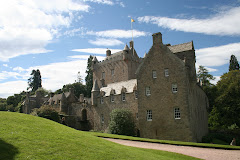
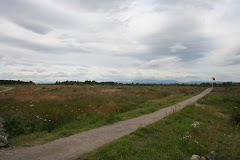

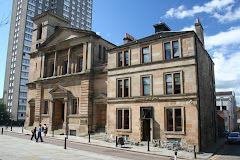

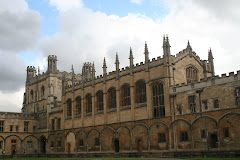

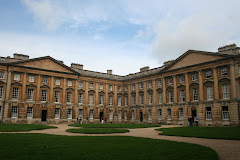
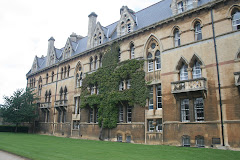
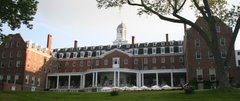

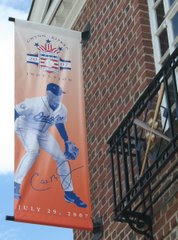
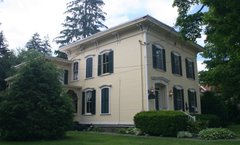

No comments:
Post a Comment